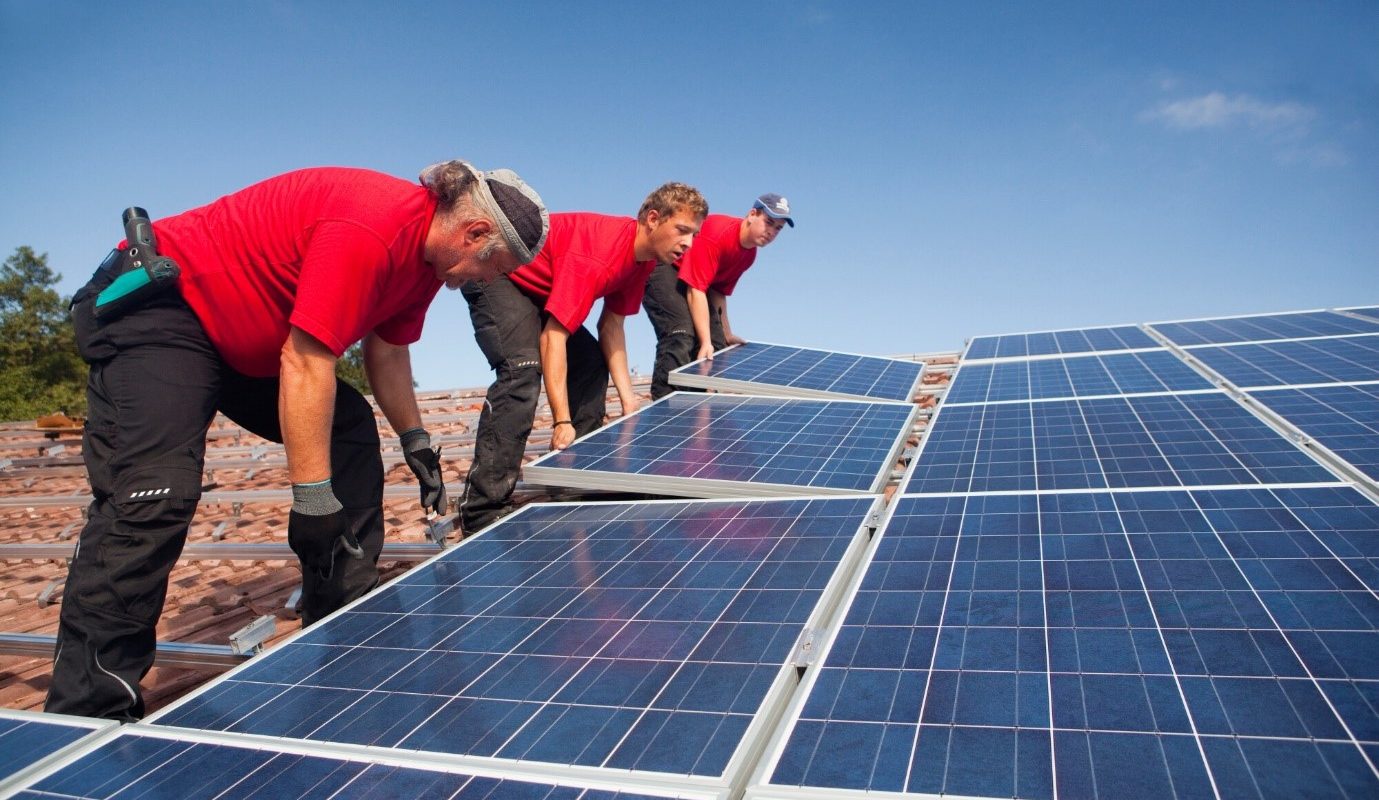The solar industry has experienced phenomenal growth in the last decade, with installation costs falling by over 50% at the same time. There’s no sign of any slowdown in the future either, as the industry recorded another bumper year in 2022.
Thanks to massive national projects and burgeoning residential installations, solar power is on its way to becoming the norm rather than the exception for US homeowners.
Nowadays, it seems like everyone’s installing solar panels. Here’s why you should consider joining the trend.
Solar is One of the Best Green Energy Options
All renewable energy sources, like solar and wind, emit few, if any greenhouse gases, and are more affordable than fossil fuels. They’re also readily available and effective in most situations.
While the wind comes and goes, the sun is an enduring constant. Even places with cold weather and many cloudy days have the potential to produce abundant solar power.
Wind installations often need tall, expensive infrastructure in areas where the wind is infrequent or weak, but you can use solar panels on almost any roof.
The sun produces more energy every day than you could ever need to run your home, and it does so without creating any noise or pollution. Solar panels are less of an eyesore than wind turbines and pose no risk to birds.
You Get Some of Your Money Back
Solar panel installation cost considerations are the major reason homeowners hold back from installing solar. When you do the math, though, you’ll see that your investment pays for itself within ten years or so.
Plus, you can take advantage of local and federal incentives when you install solar panels.
Homeowners who pay for their solar panels outright with a solar loan or cash can deduct up to 30% of their solar panels’ installation costs from their income tax during the year of installation. In many states, you won’t pay any sales tax on any of your solar equipment either.
Most states offer property tax incentives, too. That means your property taxes don’t go up when your home’s value increases due to installing solar.
If your solar panels produce more energy than you need, you can also get some money back by selling solar renewable energy certificates to utilities in need.
Here’s how it works:
State regulations dictate that utilities must produce a certain percentage of electricity from renewable sources. If they can’t do this, they must prove that they’ve paid someone else who is producing green energy to make up their shortfall.
Your Home’s Value and Appeal Increases
Conventional electricity is a consumable, but solar panels are assets. As such, they increase the value of your home.
What’s more, modern home buyers are always on the lookout for energy-saving features. So, if you’re considering selling your home, a solar installation can help you sell your home sell for more money, faster.
Installing Solar Panels Saves You Lots of Money
There’s no doubt that solar panels for household use are a substantial investment, although there are much cheaper options available too.
When you install a complete off-grid solar installation, you never have to pay an electricity bill again and you might probably wonder whats a good electricity rate compare to solar panels.This quickly adds up to a substantial saving on the cost of running your home.
If you install a grid-tied system, you’ll still save by ”selling” electricity back to your power supplier. These grid-tied setups allow you to send any unused solar electricity back into the grid in return for a credit on your utility bill.
This means you can still use electricity from your local utility company during low solar production hours, except at a vastly reduced rate.
Grid-tied installations are much cheaper to install than off-grid ones, as you don’t require batteries to store your excess solar power; you simply send it back into the grid.
If you’re looking for a cheaper installation option, you can opt for a solar PPA or solar lease. These two options allow a utility company to install solar panels on your roof at no cost to you and sell the electricity back to you at a very low rate.
Thanks to competition in the industry, you can often find some excellent savings up for grabs if you decide to go this route.
You Can Find an Option to Suit You
Don’t give up hope after receiving one solar cost estimate. Always take care to research your installation options thoroughly.
Many solar panel installers will try to sell you things you don’t need or want. The best solar company will answer all your questions and help you make the right choice for your home and your budget.
There are three main types of solar panels available for the residential market nowadays, with many more innovations on the horizon. These are:
Monocrystalline Solar Panels
Monocrystalline solar panels comprise solar cells sliced from a single silicon crystal. These panels are highly efficient, especially in low light, but they’re also the most expensive type of solar panel.
Polycrystalline Solar Panels
Polycrystalline solar panels have cells made up of reconstituted silicon shards, sliced into slivers. They’re less powerful than monocrystalline panels, although they’ll deliver a similar output in optimum sun conditions.
These are a cheaper alternative to monocrystalline panels and suit homeowners who live in areas with abundant sunshine.
Thin-Film Solar Panels
Thin-film solar panels are the cheapest option. They’re also lightweight and flexible, but not quite as efficient as the other two options.
Since you normally require many more of these solar panels to meet your energy requirements, they’re best suited to homes with very large roofs or commercial setups.
An experienced solar panel installer will visit your home to ensure you choose the right type of solar panels to suit your home’s location and energy needs.
Are You Ready for Change Yet?
These benefits help explain why so many Americans are willing to bear the high cost of installing solar panels. This technology offers by far the best long-term savings when it comes to your home’s power supply.
If you’re the kind of person who likes straight answers to life’s questions, browse our blog for more insights into a diverse range of topics.


